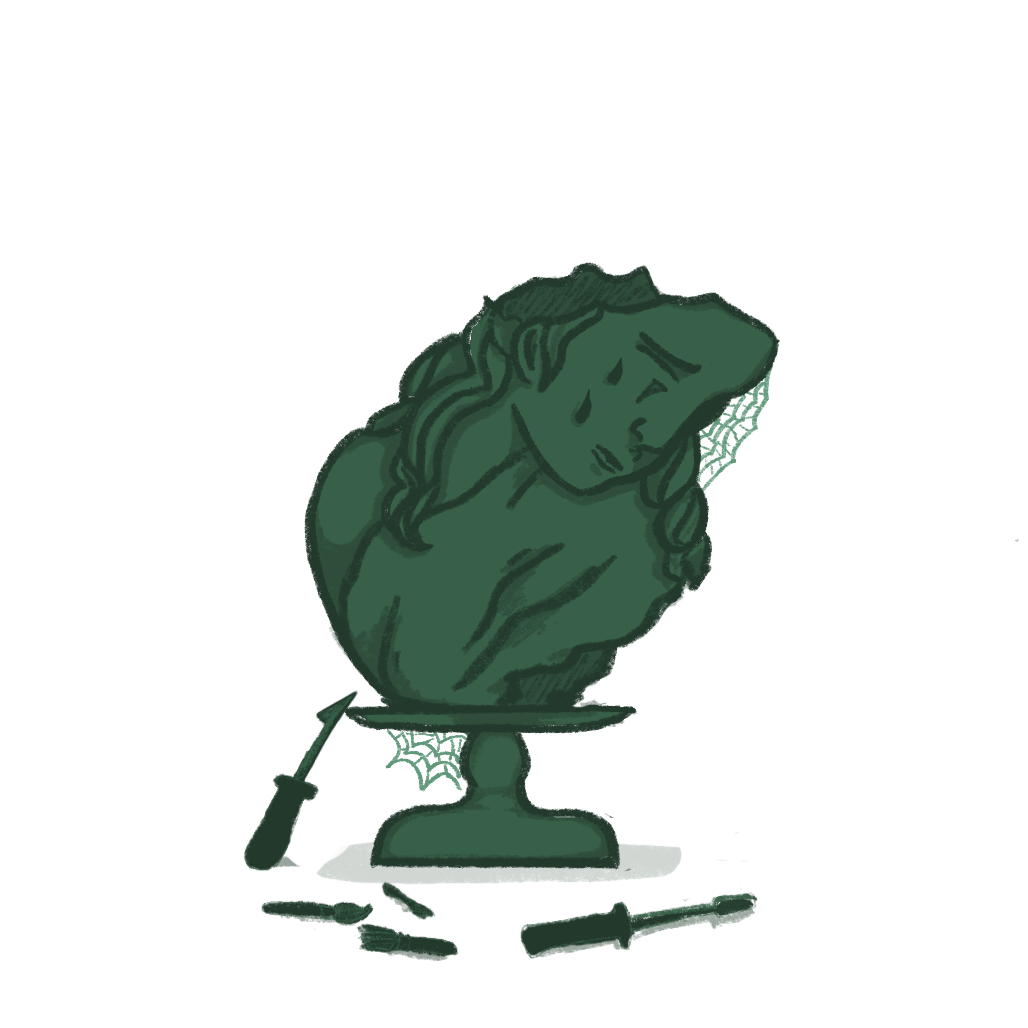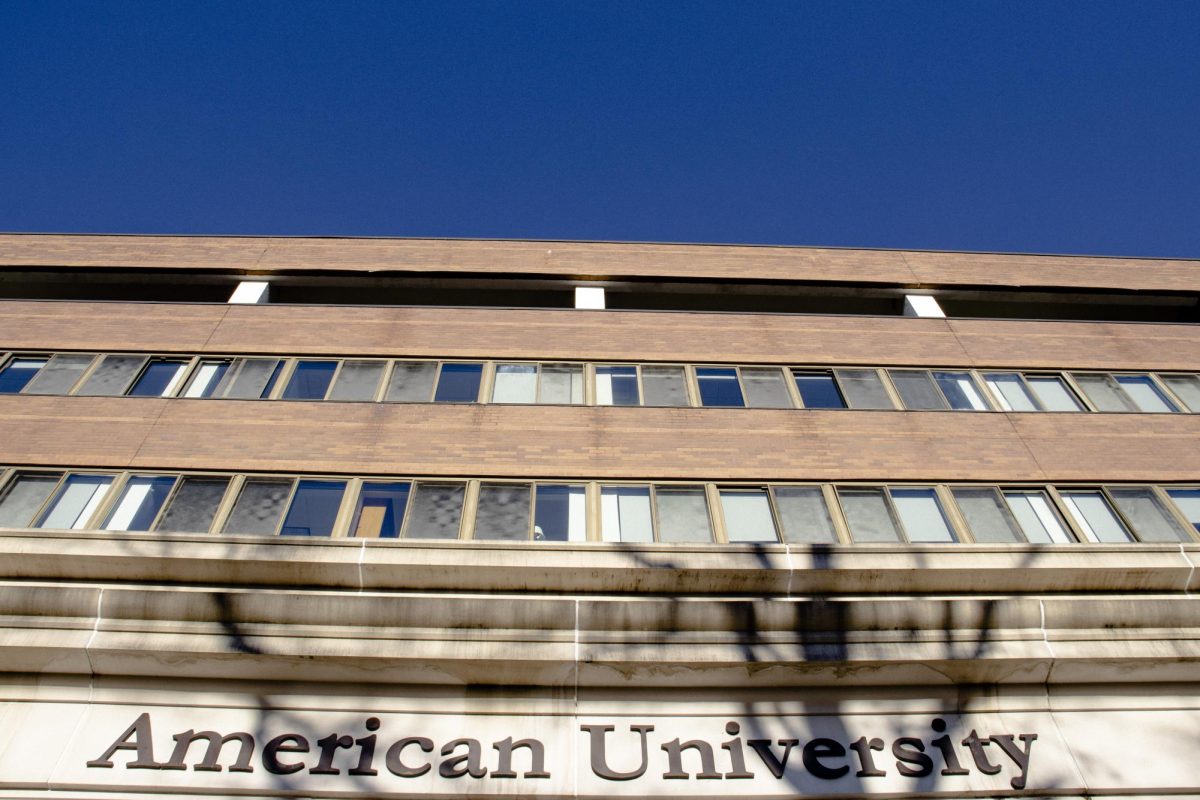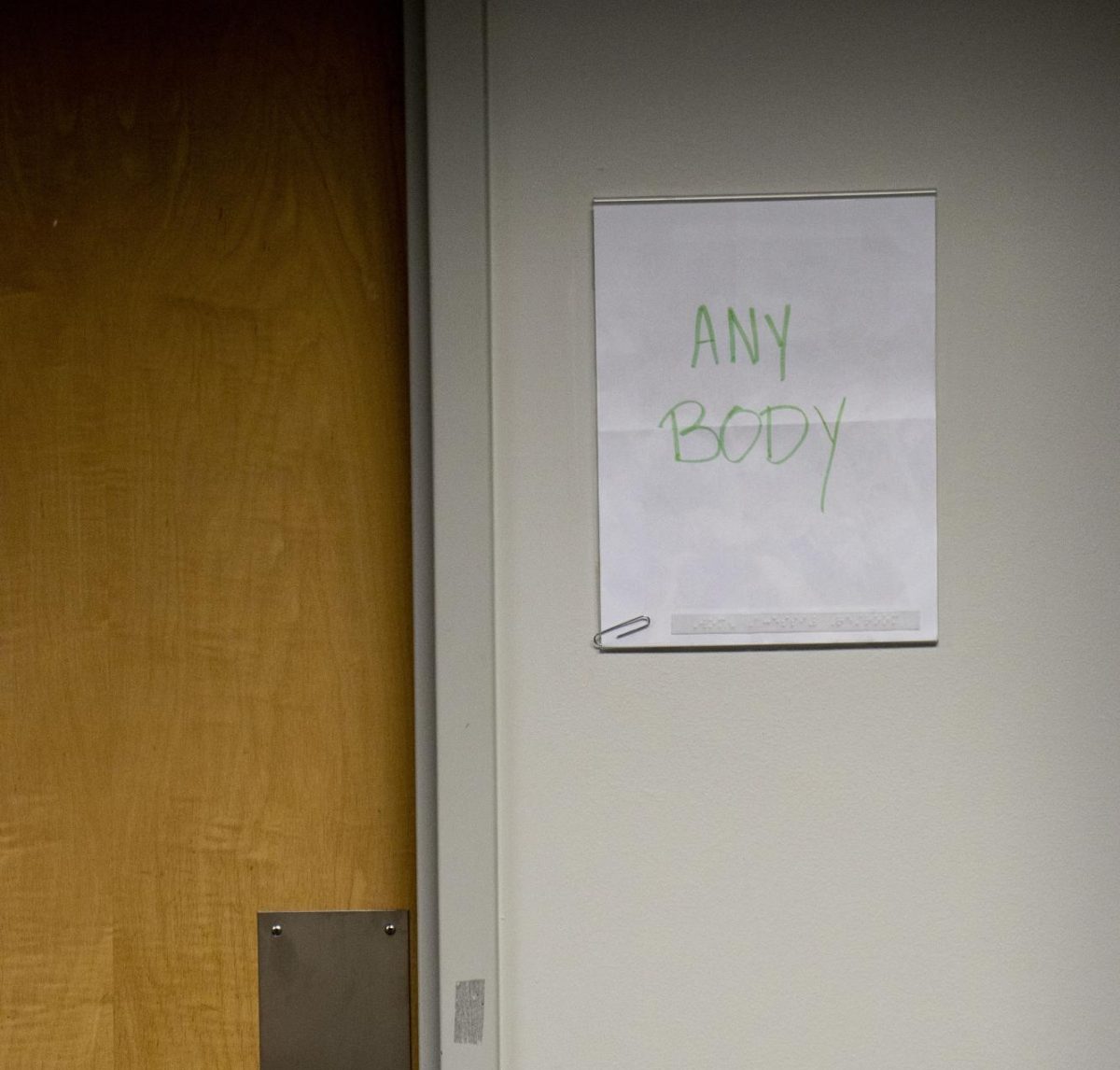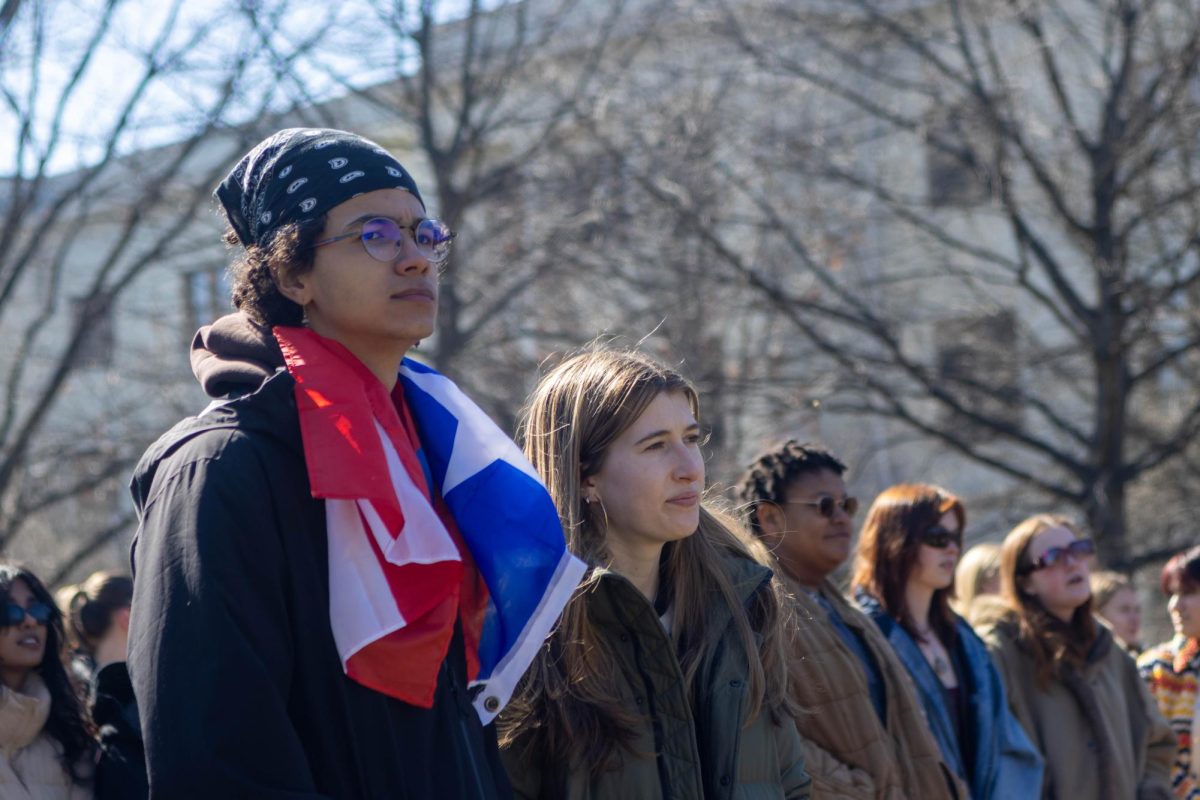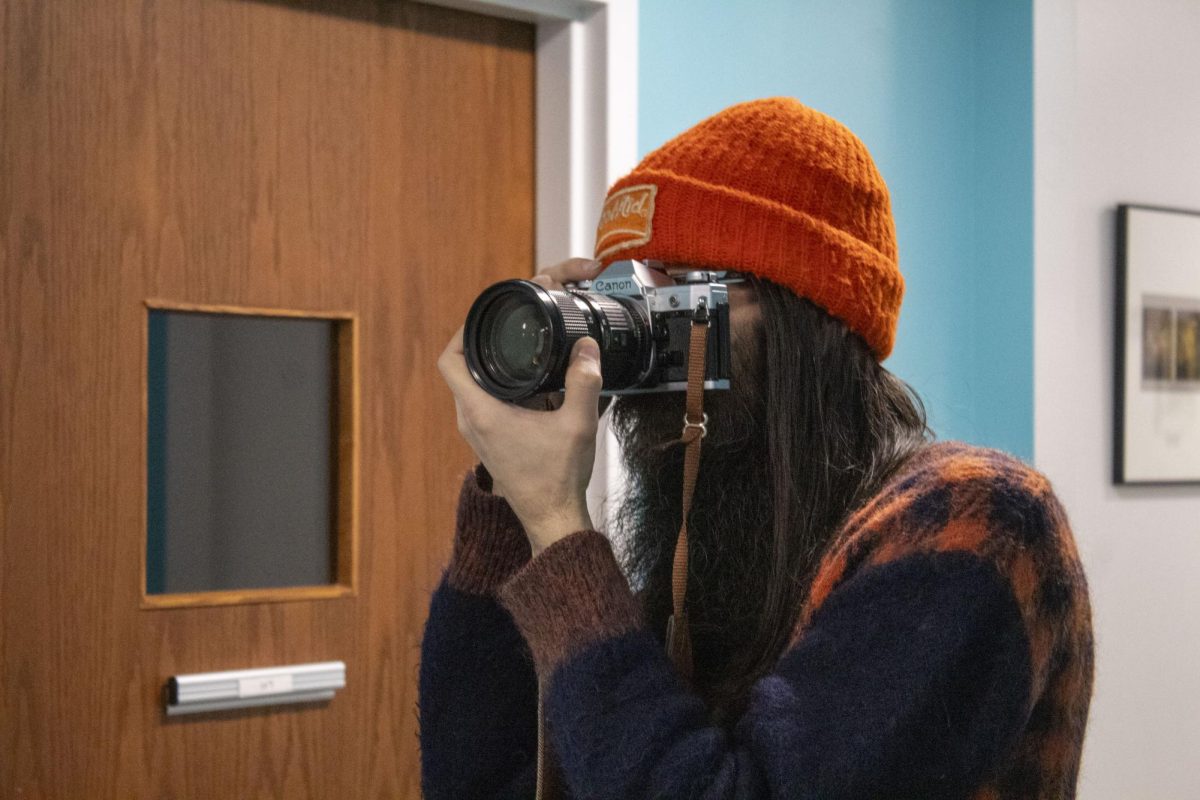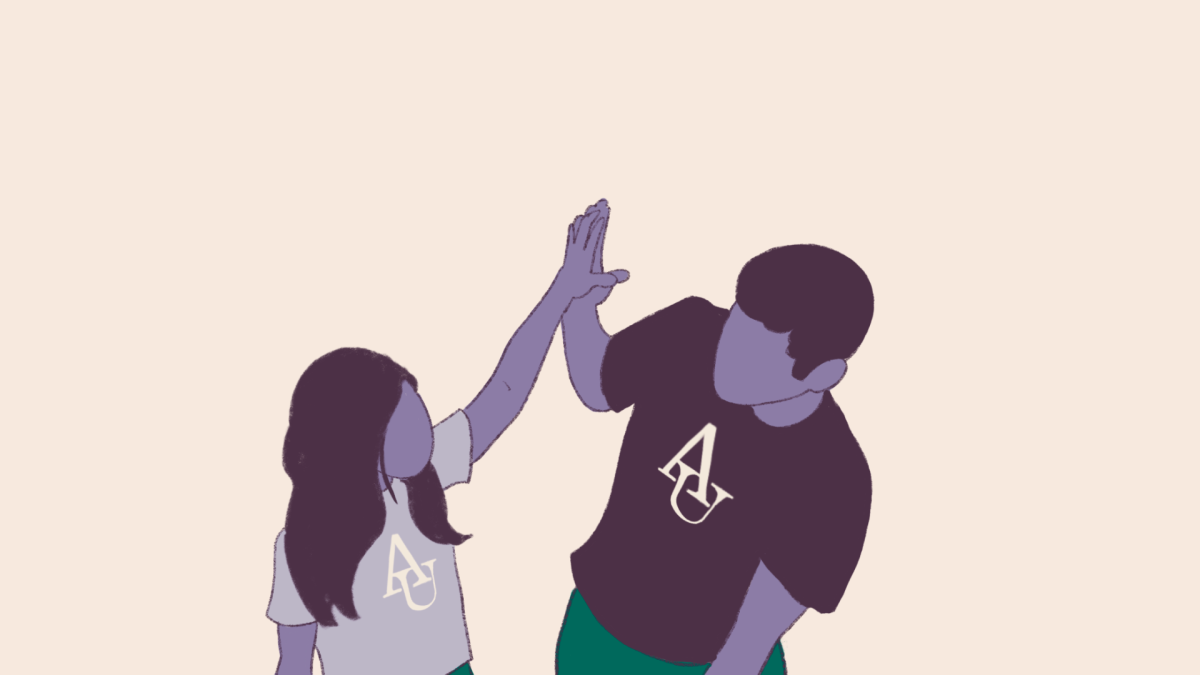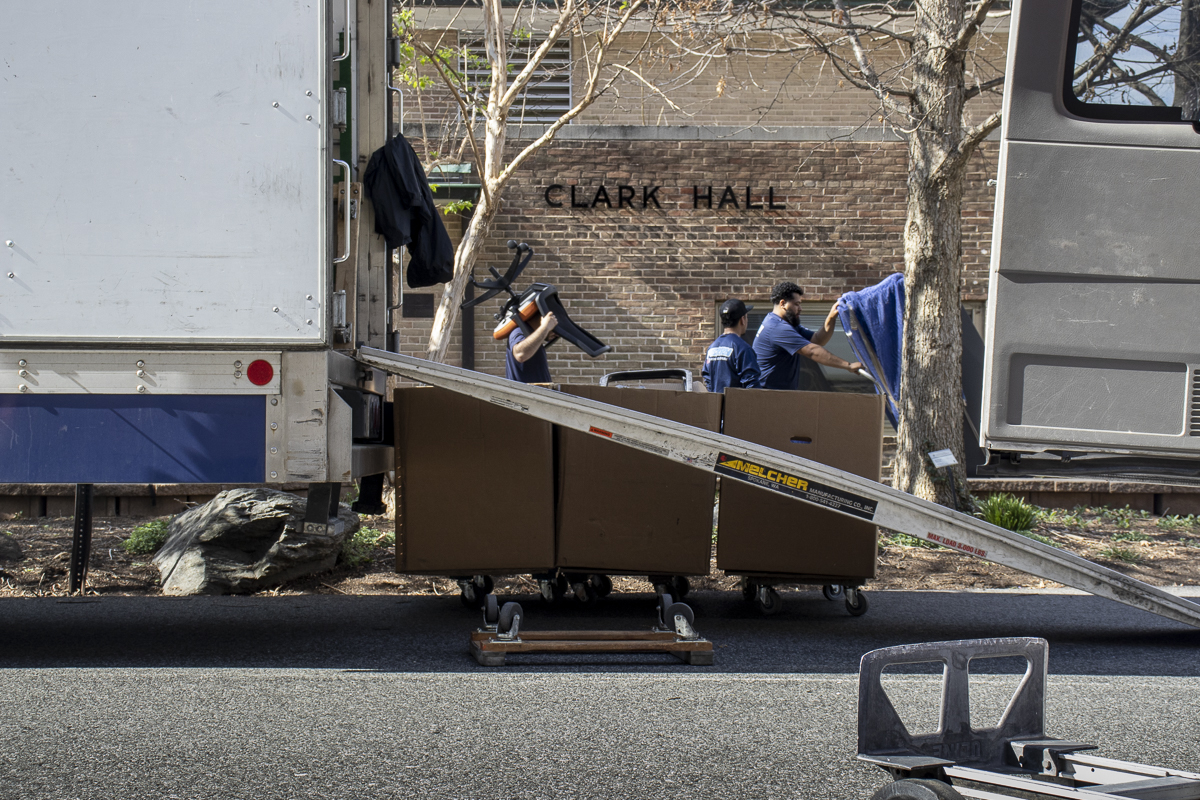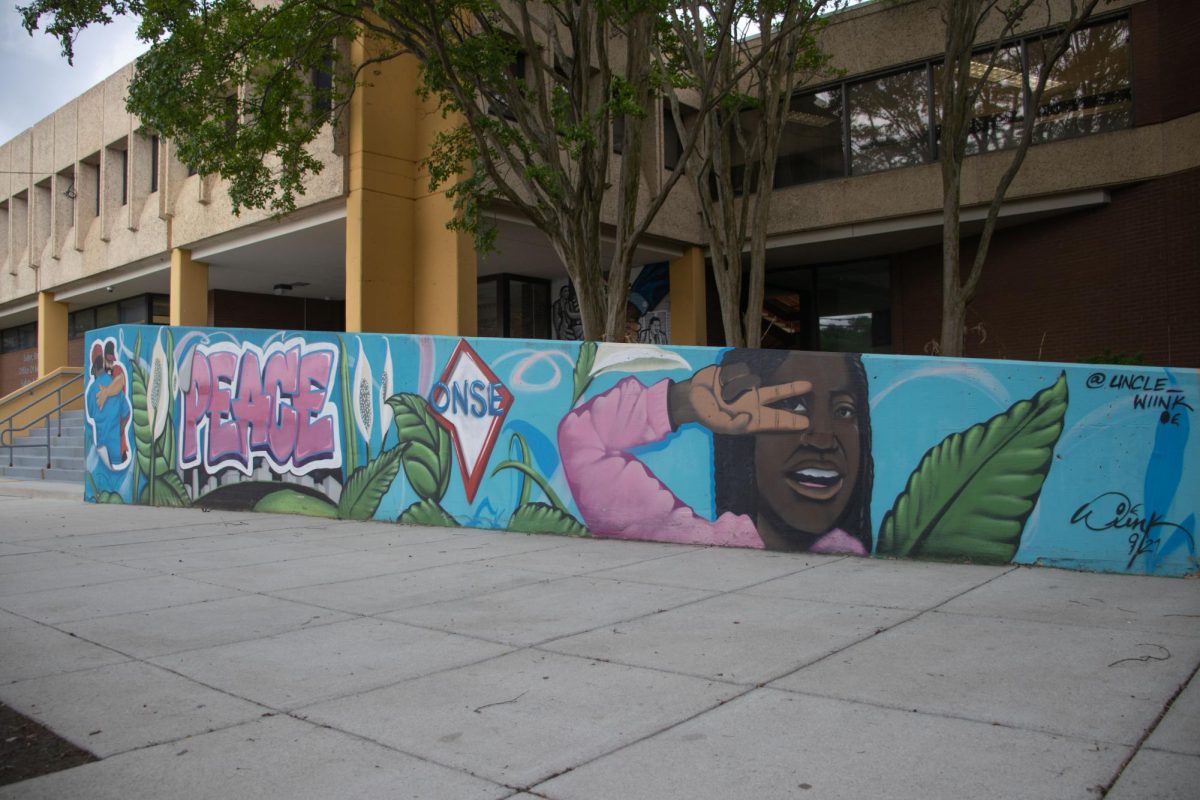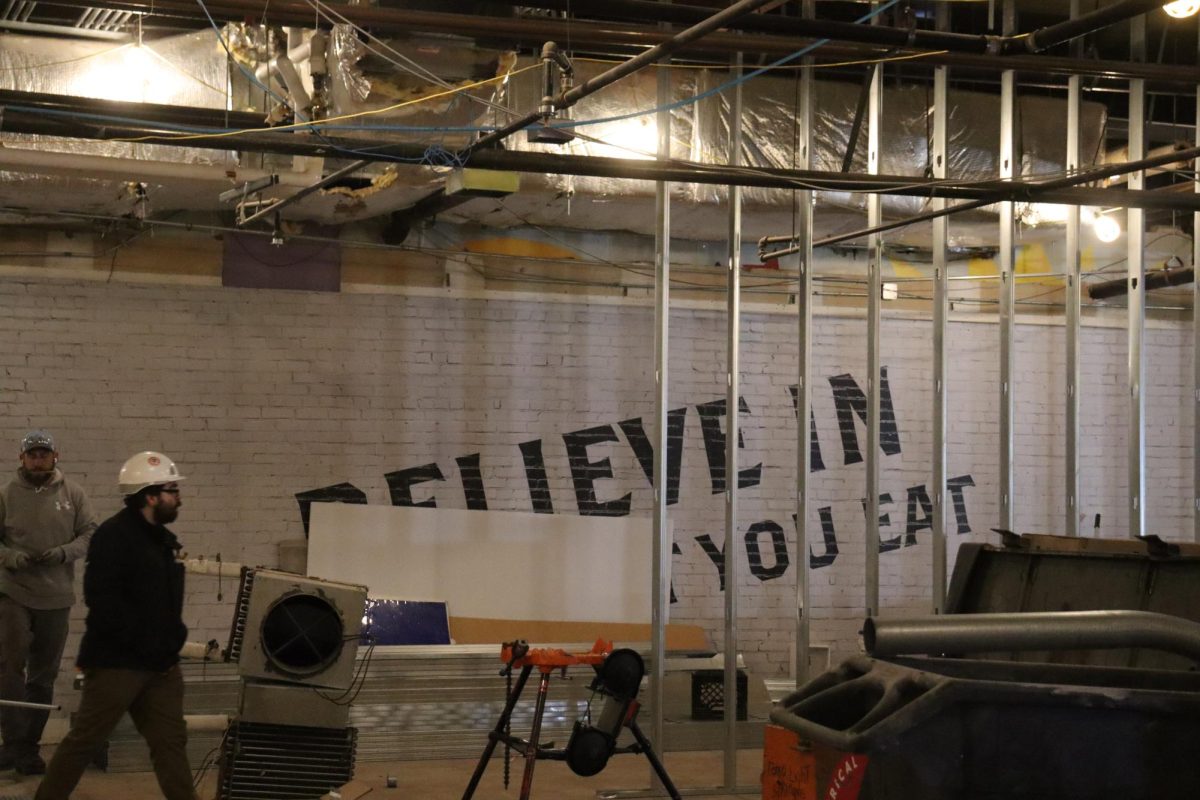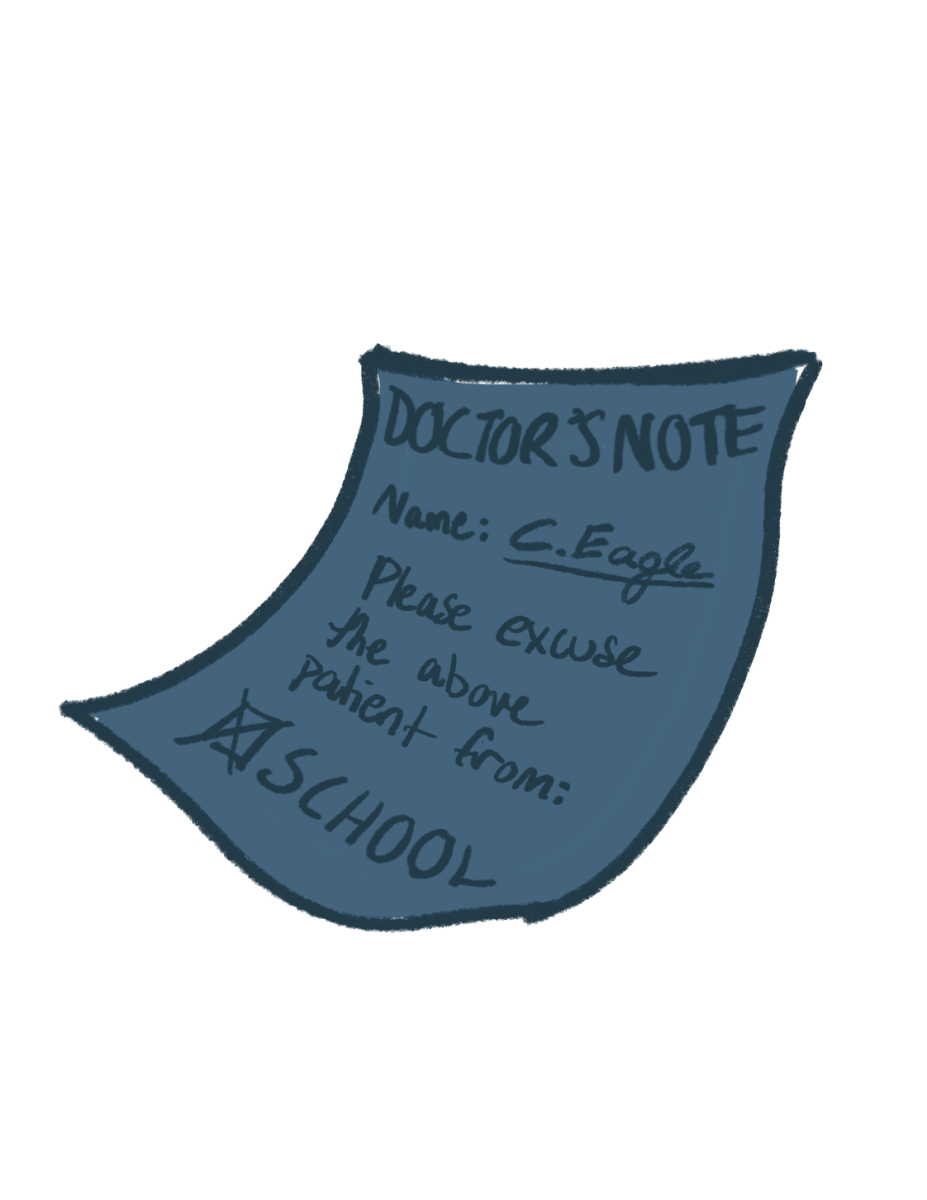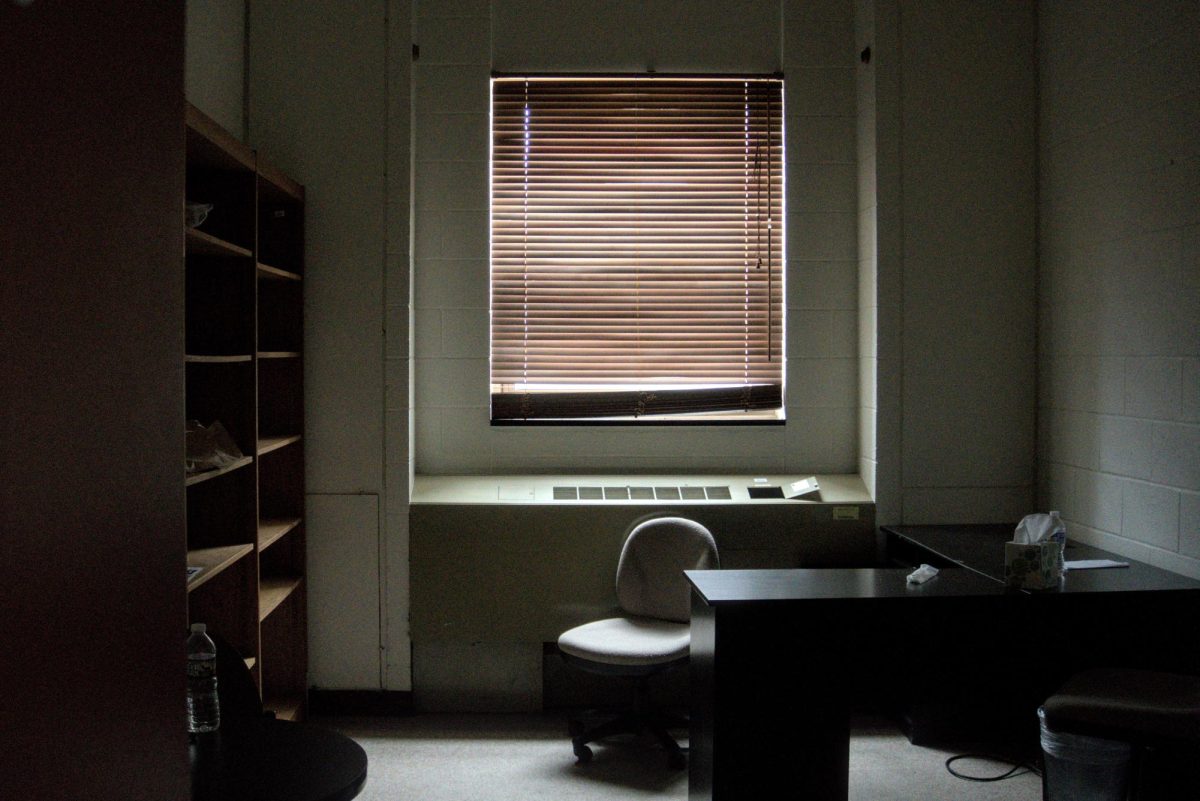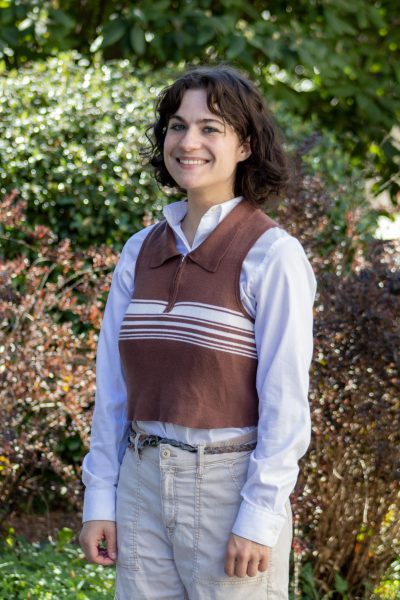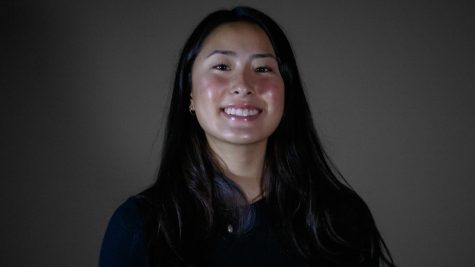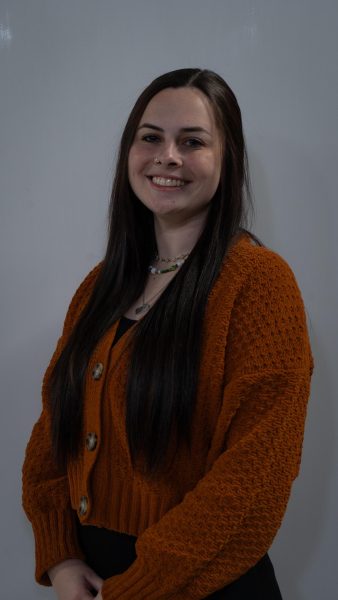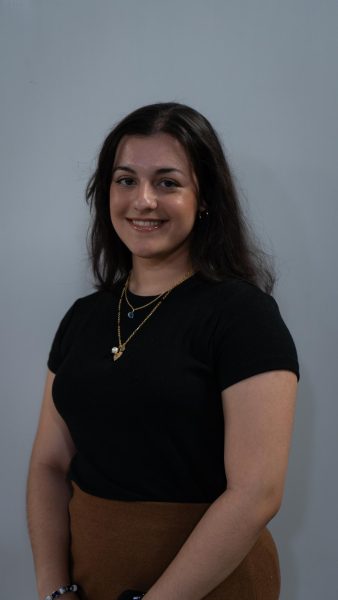When Jae K. Gee entered American University, they planned on majoring in political science. But Gee decided to switch to theater arts with a minor in political science after finding a home in AU’s theater department.
“You go to class, and you have classes with the same 20 to 30 people pretty consistently, so you’re able to build a lot more closer relationships with the people you’re working with and your classmates than you do in other programs,” Gee said.
Gee, who uses she/they pronouns, said she’s noticed that productions aren’t always properly funded.
“I mean, we’ve mostly been able to get done what we’ve wanted to get done, but that’s through making it work, not through having the support,” Gee said.
About 298 students are enrolled in art and performing arts majors, according to Fall 2023 data from the American University Academic Data Reference Book. Many others take these classes to fulfill Habits of Mind requirements. The chair of the Department of Performing Arts, Daniel Abraham, manages the performing arts programs’ budget. He said in the past few years, costs for theater productions have gone up, but the DPA’s budget has stayed steady.
Abraham said the department has been pushing to keep up with industry standards post-pandemic.
Combined, the performing arts and art programs saw a drop-off in undergraduate enrollment from 274 enrolled students in Fall 2019 to 236 enrolled students in the Fall 2020, according to AU’s Academic Data Reference Book. The following year, Fall 2021, 276 students were enrolled.
Abraham said the DPA was able to budget to ensure performances and theater productions could continue despite quarantine restrictions. Abraham said the department had a high retention rate during the pandemic because of these efforts.
Abraham said the arts are seeing a recovery from the 2020-21 enrollment decrease. He also said the DPA is making strides to provide fair wages.
“I think designers who work for universities know that it’s not going to be a top dollar payout or a top dollar contract, but they expect a proper living wage,” Abraham said. “And the university as a whole, I think, is really strong with trying to stand behind labor at a reasonable rate when we’re contracting people.”
Gee said they feel that the theater program is often short on funds and staffing for its productions, and sometimes the cast has to pick up roles they otherwise wouldn’t have to do, such as set construction.
“Pulling together and really working as a team, even though that’s not our job as performers,” Gee said. “That kind of stuff, I think, is how we’ve gotten through some of this.”
Professor Don Kimes, former department chair and program director for the studio art department, said studio art also faces troubles when it comes to funds. His biggest project as studio art program director was building the Katzen Arts Center to house the studio art MFA program.
When funding Katzen, Kimes said that the department had roughly $60,000 of flexible funds at its disposal. Usually, Kimes used this money to bring in visiting artists that would not only enrich students but also drive up attention for the program — attention that he said got the Katzen family interested in funding the building.
“Because I was able to sort of cherry pick great people to come and specific artists and so forth, we ended up really advancing the program over a very short period of time,” Kimes said.
Kimes said there was a little bit of flexible funding.
“It’s a small fraction of the overall budget, but it was critical because it was flexible,” Kimes said.
Kimes said when the school started facing budget issues, the first thing to go was the flexible funds. Though he said it makes sense that money gets cut before faculty, he said it still hurts the program. While undergraduates have struggled to find open classes because of less faculty
and space, he said graduate students have seen a drop-off in enrollment.
“If there’s one big thing that’s affected us more than even that, it’s been the lack of flexibility in the budget,” Kimes said. “And that has deterred people from applying to graduate programs.”
The university budget is being re-evaluated. Chief Financial Officer Bronté Burleigh-Jones announced that AU had hired Huron Consulting Firm to deal with the university’s ongoing budget crisis, according to a Dec. 4, 2023, email to AU staff and faculty.
AU’s American Association of University Professors chapter released a statement on Dec. 7, 2023, to ask the administration and the board of trustees to end their collaboration with Huron Consulting Group.
Kimes said he feels a disconnect between administration and faculty, not only at AU but also at universities nationwide.
“I feel like 30 years ago there was a little more willingness,” Kimes said. “It was either they were just ignoring us and we were doing what we
wanted, or there was a little more support for it.”
Nationwide, there has been a trend favoring STEM programs in university budgeting. The humanities experienced a 12% drop in postsecondary faculty from 2015 to 2020, while the health sciences saw an 11% increase, according to the American Academy of Arts and Sciences.
Studio art major Heather Roselle said she worries funding deficiencies are also affecting art student scholarships.
“If I didn’t have [a] scholarship, there’s absolutely no way that I would be in a program like this,” Roselle said. “This kind of perpetuates this racial and economic divide within the arts industry because, a lot of the time, the only people who can afford to be in a program like this are wealthy people.”
At a town hall in December 2023, Marcus McNeil, the finance and operations coordinator for the Center of Student Involvement, said that more money was allocated to student financial aid in 2022. Despite AU’s budget shortfall, McNeil said the administration took steps to adapt without affecting student life.
Although Roselle said she understands why AU is oriented toward students interested in politics, she said the arts contribute to the success of AU students. She said she feels many students come to AU bright and full of ideas but eventually lose their creativity.
“The reason why studio art is so important to me is because it actively pushes against the idea that by being within the walls of this institution, you’re going to lose your edge,” Roselle said.
Hannah Briceño, a junior majoring in musical theater and computer science, said she feels her program is adequately funded.
“I think that the work that all of the faculty and program advisors do here to give us the best opportunities with what they have and stuff, they really take everything that they can do to make it a great program regardless,” Briceño said.
Voice Professor Susan Derry, who mostly teaches musical theater students, said she has noticed a lack of support within the music and theater fields. Musical theater students are required to take one-on-one lessons in the music department.
Derry said the music department has no full-time voice faculty, and because vocal lessons are vital for the performances of musical theater students, she said this creates issues when it comes time for students to hone their craft.
“To become a musical theater performer, you need to have control of your vocal instrument,” Derry said. “But the requirement for the major is only three semesters of voice lessons. So that, to me, is a massive complication because I feel that it would be a good idea to study your voice the whole time.”
Derry said the school only has three collaborative pianists, who assist students in musical performance juries at the end of the semester for students in applied lessons. With the number of students in vocal and instrumental lessons, Derry said the collaborative pianists are severely overworked. She said the school had requested more collaborative pianists, but so far, it has not received any.
Abraham said he hopes to add a managing producer to the department, who would be in charge of organizing and overseeing all productions put on by the department.
“The fixes aren’t hard,” Abraham said. “We even have the line for a managing producer. It’s been given to us. But there’s no funding for it right now.”
Derry said that between the talent in the student body and the faculty, she sees fundraising potential for the music department.
“Everything right now is content, content, content,” Derry said. “We make it every day. It’s not better or worse than anything, it’s just what it is. So use it for what it’s for.”
Derry said she thinks having vocalists, small groups and student bands created in the Songwriters’ Hub perform at campus events with potential donors will bring in more attention and money.
Abraham said donors provide a huge opportunity for funding within the department.
Although Derry said she recognizes STEM programs are teaching skills that will lead toward a brighter future, she said the arts are a special emotional outlet for students.
“You can come and be somewhere else for a little while, you can go to a practice room, sing your heart out, even if you’re not a singer,” Derry said. “Everybody can sing. You can use your body to go to a dance class and release some of that stress, go see something that takes your mind off of what you’re trying to accomplish, and I guarantee you will come back refreshed.”


